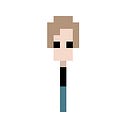
One of the tools I use in training people to do this thing we call UX, is to have them sit down and define their own user experience.
Not how the world should be or what opportunities they should get, but what they are going to do for the world around them, as a UXer.
It’s a brilliant exercise, so I’m going to tell you how to do it and why it’s a really useful thing to do.

How to do it
Super simple. There are 10 questions to answer. Write down the answers to each question, discuss them and understand what they really mean to you. Then write down the actions that will exhibit them in daily working life. And then act on them.
Here are the questions:
- What is it like to work with you? these are your experience principles
- What kinds of methodologies and processes do you follow? this is your rigour
- How do you deliver for clients, stakeholders and colleagues? this is your service
- Where is your line of personal accountability? this is where you are answerable for work
- What is your work ethic? this is how hard you work and when
- What do you believe in? these are your moral standards
- What will you tolerate? this is your line in the sand
- How will you get better? this is your self-driven development
- What are you going to contribute to the UX community? this is the value you give back
- How are you going to change the world? this is the thing you will achieve between now and the end of your career, and a little every day

Why is this a useful task?
Let me count the ways. This is a brilliant task to do either all at once, over a period of time, or one question at a time. It helps the teacher, the student, the team and the clients in the following ways:
- It tells and (more importantly) shows everyone what you stand for
- It sets expectations around your work and behaviour
- It helps you plan your goals and objectives and how you will work towards them
- It helps you assess whether you are meeting your own goals and objectives, without the need for constant external reassurance
- It makes you existentially authentic (that’s another post, but basically means that you don’t just say you do something, you do it in a genuine way)
- It exposes any weakness in your current skills so that you can work on them, usually before anyone else notices!
- It drives your purpose from within, rather than having it thrust upon you
- You can stop worrying about all the questions you have about your skills, career and personal development, and just focus on living the standards you’ve just set for yourself.

Ultimately, it doesn’t matter what you write down, it matters that you write it. If you want to say that the user experience of you is that you only work 9–5, don’t intend to put in any extra effort and won’t be trying very hard then that’s genuinely ok — at least you’re being honest about it. And as a user of “you”, I know not to invest too much of my own time and resources. I don’t need to push you further as it will only frustrate us both.
However if the UX of you is going to be that you give a sh*t, will work hard, and will contribute something proactively to the world of UX, then awesome. Crack on. But as with all good user experiences — be consistent.
Through your behaviour you will be known.

Personally, the UX of me is that I’m extremely demanding of myself and others, that I have a moral imperative to spend my clients’ money on good work not on nonsense, that I am hugely sarcastic about pretty much everything, and finally that I am obsessed with learning and sharing things I have learned. It’s a fine balancing act of 50% cynical old man and 50% excited small child. But it’s consistent.
Once everyone around you perceives a consistent UX of you, they will know exactly who you are, what you are doing and why, and how to work with you or for you. But first it has to start with an honest understanding your own self.
Hello 👋
Thanks for reading! For my latest articles and other bonus content, you can now follow me on Substack.
